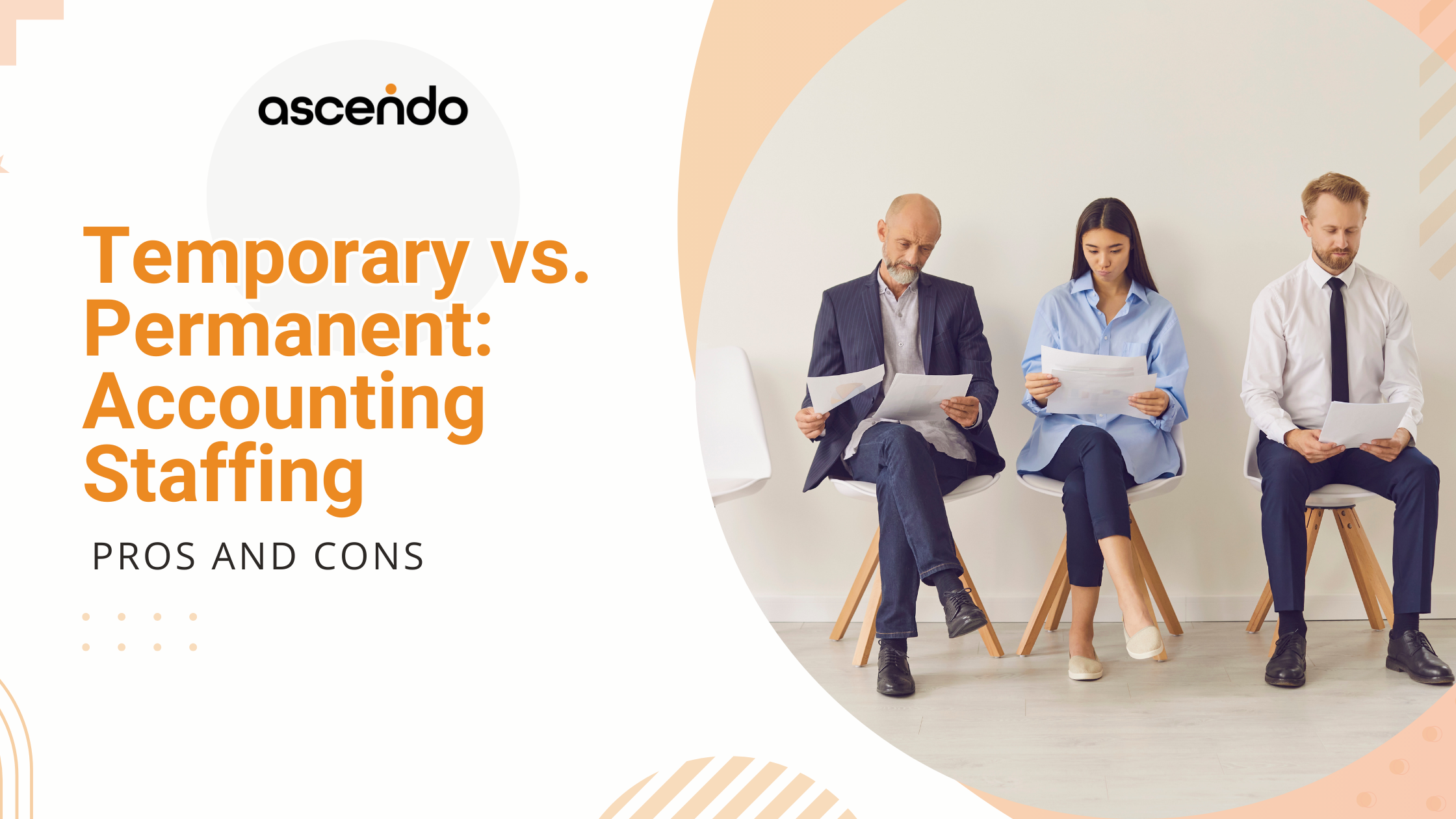Temporary vs. Permanent Accounting Staffing: Pros and Cons
Hiring the right accounting staff is a critical decision for any business. The choice between temporary and permanent staffing solutions can have a significant impact on your company's financial stability and overall success. Both options have their merits and drawbacks, and understanding these can help you make informed decisions. In this blog, we will compare the benefits and considerations of temporary and permanent accounting staffing solutions.
Temporary Accounting Staffing
Temporary accounting staffing involves hiring professionals for a fixed duration, typically to fulfill specific project needs or during peak seasons. Here are the pros and cons of this staffing option:
Pros:
- Flexibility: Temporary staff can be brought in when needed and let go when the work is done, offering flexibility in managing your workforce. This is especially advantageous during busy tax seasons or when facing unexpected workloads.
- Specialized Skills: You can hire temporary accountants with specific expertise or skills tailored to your project's requirements, ensuring you have the right talent for the job.
- Reduced Hiring Time: Temporary staffing agencies can quickly provide qualified candidates, saving you the time and effort required for a full-time hire.
Cons:
- Lack of Continuity: Temporary staff may not be as invested in your company's long-term success, potentially leading to a lack of commitment or engagement.
- Training Needs: You may need to spend time training temporary staff, which can be a resource drain, especially for short-term projects.
- Limited Knowledge of Company Culture: Temporary employees may not fully understand or align with your company's culture and values, which can affect teamwork and cohesion.
Permanent Accounting Staffing
Permanent accounting staffing involves hiring professionals as full-time employees who become integral parts of your organization. Here are the pros and cons of this staffing option:
Pros:
- Cultural Fit: Permanent employees have the opportunity to assimilate into your company's culture, fostering a sense of belonging and teamwork.
- Investment in Training: Hiring full-time accountants allows you to invest in their development and train them according to your specific needs, creating a highly skilled workforce.
- Consistency: Permanent staff provide consistency and stability, which can be crucial in maintaining a smooth financial operation.
Cons:
- Higher Costs: Full-time employees come with additional costs, including benefits, paid time off, and potential long-term commitments. This can be expensive for businesses with fluctuating workloads.
- Hiring Process: The recruitment process for permanent staff is typically longer and more involved, requiring careful consideration to find the right fit.
- Inflexibility: Once hired, it can be challenging to reduce your permanent workforce if circumstances change, potentially leading to overstaffing in lean times.
Choosing the Right Option for Your Business
The decision between temporary and permanent accounting staffing depends on your specific business needs, budget, and long-term goals. Consider the following factors when making your choice:
- Project Duration: For short-term projects or seasonal fluctuations, temporary staffing may be the best choice. If you need ongoing support, permanent staff could be more suitable.
- Budget Constraints: Evaluate your budget and determine if you can afford the long-term costs associated with permanent employees or if the flexibility of temporary staff is more cost-effective.
- Skill Requirements: Assess whether your projects require specialized skills that are best obtained through temporary hires or if your needs align with permanent roles.
Temporary and permanent accounting staffing each offer unique advantages and considerations. Ultimately, the right choice for your business depends on your specific circumstances and goals. It's important to weigh the pros and cons carefully, considering factors such as project duration, budget, skill requirements, company culture, and workload consistency. By making an informed decision, you can build an accounting team that contributes to your business's long-term success.

